A flight of fantasy that has been bought by much of what NATO terms as the ‘international media’ is that there is a wing of ISIS (ISIS-Khorasan) that, according to the President of the US, is bitterly opposed to the Taliban, writes Prof. Madhav Nalapat

The Kabul terror attack was inevitable. The dread of both President Donald Trump as well as his successor of risking the return of US service personnel body bags has been palpable since 2019. Such fear at the top attracts terror modules in the manner that blood attracts sharks. President Joe Biden, given his short but sorry record in Afghanistan, has very little credibility when he speaks of holding “those responsible (for the terror attacks) accountable”. Who are responsible? How will the Commander-in-Chief of the US military hold such wraiths “accountable”, when their support system, the Taliban, is off-limits to retaliation?
The US Presidency is the first real executive job that Joe Biden has ever held. A US Senator may carry clout, but bears no executive responsibility nor wields executive authority, except over his staff. The Vice-President of the US serves as the default option in case the President passes on, with little to do and plenty of time to do that smidgen of what passes for work in a Vice-President’s life. It is true that the origin of the harmful decisions made on Afghanistan by President Biden have their origins in the Trump presidency. But for a man who campaigned and won on the platform that he was Trump Contra, such an embrace of his predecessor’s toxic policies was unexpected and, in the eyes of several voters, possibly unforgivable. The fantasies that have for decades driven US policy on Af-Pak (the linking of Pakistan and Afghanistan in a clutch of matters involving both or either) did not begin with President Biden, but it is on him that responsibility for the present disaster vests.
The Taliban has five successive US Presidents to thank for the manner in which they have humiliated the US before the international community, and brought new hope and vigour to multiple terror modules germinating across the globe. Presidents Clinton, Bush, Obama, Trump and Biden each contributed to first the creation and subsequently the survival and finally revival of a rag-tag collective of medieval fanatics propped up by surprisingly unsanctioned Middle Eastern donors added to logistical support from GHQ Rawalpindi.
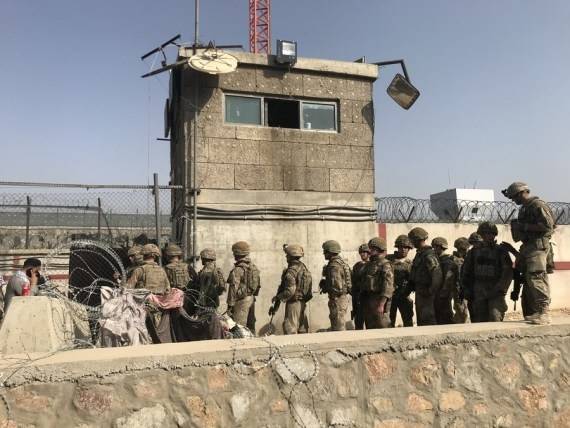
Since CCP General Secretary Xi Jinping launched the policy of outsourcing much of the security of the PRC to the Pakistan military by mid-2013, the Taliban have acquired in China a source of assistance that in quantity matches that provided by the US at different times since the mid-1990s. When a country is an acknowledged superpower, several within its policy making and implementing machinery develop a feeling of omniscience and omnipotence. They begin thinking and acting as though the courses of action followed by them are by definition correct and optimal. Once a course of action gets launched, admitting that it was a disaster is made impossible by the realisation that such an admission would affect not just the individual or group’s status within the governance system, but future rewards as well.
Symbols and tokens get mistaken for the real, such as the tokenism of both Trump and Biden having the Pashtun-born but deracinated Zalmay Khalilzad accepted as the final word on the Pashtuns of Afghanistan, a group whose interests Khalilzad has from the 1990s equated with the Taliban. Given the disconnect between Zal Khalilzad and any Pashtun roots that this longtime backer of the Taliban may once have had, it is not surprising that Khalilzad sees as authentically Pashtun a collective of zealots who are completely removed from Pashtunwali, the code of that admirable community, the Pashtuns, across both sides of the arbitrary and historically unjust line on a map known as the Durand Line. These days, a third of the ranks of the Taliban forces are controlled by the Wahhabi Punjabi officers of GHQ Rawalpindi, while another sixth has been incentivised through dollops of “assistance” to follow instructions issued by the PLA. The rest remain Free Pashtuns, unwilling to subject themselves to any alien supervision, including the domination that GHQ Rawalpindi and the PLA exercise over their agents within the ranks of the Taliban.
ALSO READ: Afghanistan becoming a graveyard of journalists
Given the importance the Free Pashtuns give to their independence of thought and action, the odds are high that internecine struggle will soon become visible between them and what may be described as the GHQ Rawalpindi and PLA Captive Pashtuns within the Taliban. Interestingly, the proportion of older (especially wealthy) extremists is very high in the Captive Taliban segments, while the overwhelming majority of the Free Pashtuns are young. All factions are united by a civilisational hatred of the NATO alliance, especially the US, which is looked at as a consequence of many of its actions as the successor to the former European colonial powers.
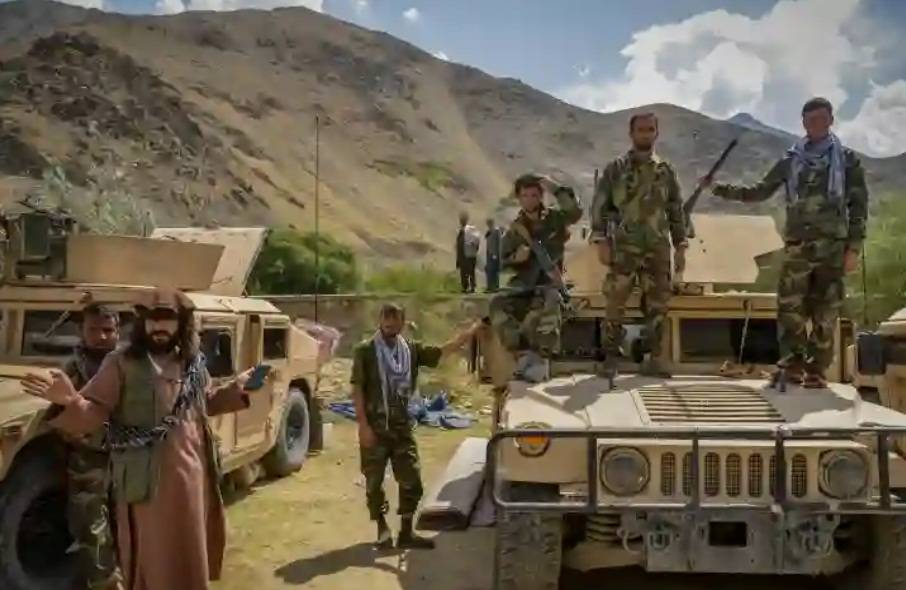
ELECTORAL IMPACT
US interests have long been damaged by the unwillingness of ruling politicians in particular to factor in any consideration other than possible means towards success in the next election. President Joe Biden, unsurprisingly, is eager for control through sizeable majorities of both the Senate as well as the House of Representatives in the US Congress. Biden’s scurrying away from Afghanistan has been motivated by policies crafted as a consequence of focus groups and opinion polls claiming to point to what US voters want, which in the case of Afghanistan is a rush towards the exits. The problem in such calculations is that the number of US forces and the casualties suffered by them in the years leading up to the Biden capitulation have been negligible.
If not Biden, surely Defense Secretary Lloyd Austin must have been aware that the Afghan National Army (ANA) was (owing to a lack of trust within NATO in the Afghan people) trained and equipped in a manner that made their readiness for the battlefield subject to continual logistical and other assistance from elements of the US military as well as US-based contractors hired by the Pentagon. Given that Secretary Austin must have been aware that the ANA would fold up once such support was withdrawn, it is a mystery as to why the well-regarded former US Army general did not threaten to resign as a means of preventing President Biden from the suicidal course that the substantial number of Wahhabi influencers within the Democratic Party ranks urged on him.
While the loss of respect of the military for their Commander-in-Chief is palpable (as chatter in US military mess halls across the world make clear), another casualty has been their earlier regard for the US Defense Secretary, who is now regarded as just a “Yes Man” to the US President in the manner of Secretary of State Antony Blinken and National Security Adviser Jake Sullivan are regarded, perhaps unfairly in the case of all three of these very capable individuals. While the (often closet) Wahhabis within the US polity and administration may disagree, the reality is that voters are unlikely to look with favour on the devastating fallout of Biden’s decision to scoot and run from the battlefields of Afghanistan.
This was done in a shameless manner that has been on display to the international community even through Biden-favouring media outlets such as CNN or the New York Times. While Donald J. Trump is unlikely to secure an encore into the White House, the possibility of the Republican Party sweeping the 2022 midterms and the 2024 polls has been made possible by the pell-mell withdrawal ordered by Biden of all US military forces from Afghanistan, and that to the operationally impossible timetable set by the enemy combatant.
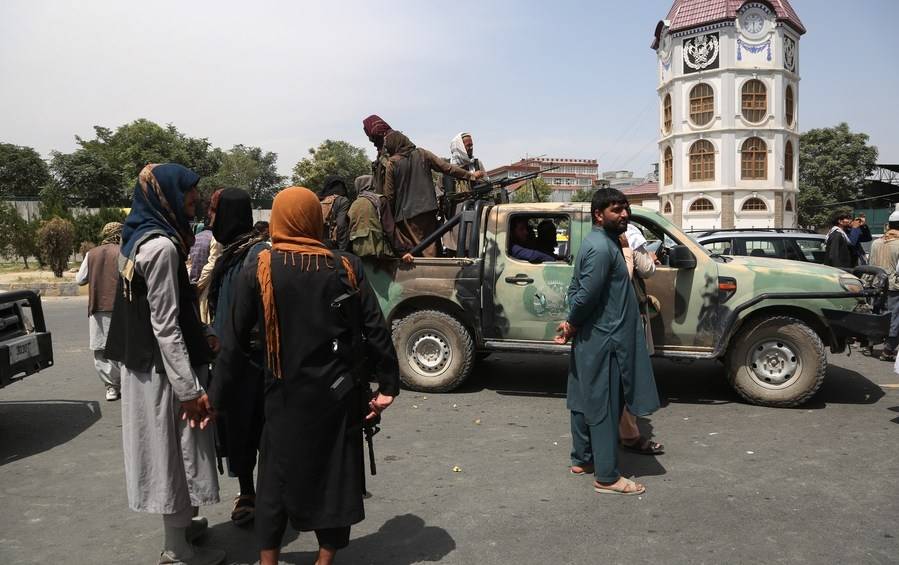
BIDEN AN UNRELIABLE SECURITY PARTNER
Less than 1,100-1,300 US special and protective forces were all that was needed to ensure that the Afghan National Army prevail rather than fold in its contest with the Taliban. That, plus the complement of contractors needed for logistical and other support, the expenditure on which would benefit the US economy through the retention of jobs and production capacity rather than (as alleged by Biden backers) get frittered away uselessly in an “endless” war. Why the continued stationing of US soldiers in Germany and Japan since 1945 (even after the collapse of the USSR in 1992) is not an example of “endless war” although Afghanistan is to Biden at least, remains unclear.
Across the world, President Biden’s shameful placing of the entire responsibility for the fall of Afghanistan to the Taliban upon the shoulders of the Afghan government and its military has stunned US allies and prospective partners. With such Commanders-in-Chief as Donald J. Trump and Joseph R. Biden, is it possible to regard the US as a reliable security partner, that too against the PRC? This is the question that has come to life after Biden decided to continue with his predecessor’s acceptance of Khalilzad’s plan to once again (as in 1996) hand over Afghanistan to the Taliban. It is clear that this Trump-appointed Biden favourite has learnt little from his Clinton-era escapades, when as a private citizen he worked alongside Assistant Secretary of State Robin Raphel to install the Taliban in power in Kabul in 1996.
ALSO READ: As Afghanistan explodes, Tajikistan comes in global limelight
It was President Clinton who went along with the views of oil interests in the US who were tutored by GHQ Rawalpindi to regard the Taliban as being the answer towards securing stable access by US corporates to the mineral riches of that fractured country. President George W. Bush outsourced US strategy in Afghanistan after 9/11 to the Pakistan military, his thinking confused as a consequence of his obsession about Saddam Hussein. It was during the Bush-Cheney tenure that US funds and weaponry flowed to Taliban elements identified by GHQ Rawalpindi to their trusting US interlocuters as “moderate Afghans”. The US taxpayer funded the revival of the Taliban under President G.W. Bush and afterwards, each of his successors. No surprise, considering the unthinking reliance of successive administrations on the Pakistan military.
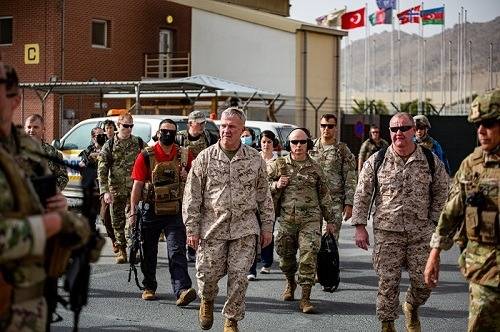
Barack Obama, with his lack of interest in anything other than matters of personal political interest that has been a defining characteristic of the manner of functioning of the 44th President of the US, continued with the time-honoured policy of regarding the Pakistan military as the solution and not the problem facing Afghanistan. Among the consequences of this fatal policy was the continued revival of the Taliban. This is a collective that has made no secret of the fact that it regards the US as the Great Satan that needs to be eliminated, initially from Afghanistan and subsequently from other regions as well. Given such a history of serial errors in identifying and understanding the difference between friend from foe, it is no surprise that NATO has thus far not moved at all in seeking to ensure that the Northern Alliance prevail in the Panjshir Valley.
Should the forces led by Acting Afghanistan President Amrullah Saleh succeed in preventing the Taliban from taking control of the small province, it is certain that President Biden, Prime Minister Johnson and other NATO leaders would claim credit for a victory in which their role has been as facilitators for the other side. Given the trajectory of events, the sooner the Northern Alliance is assisted and not (now as during 1996-2001) ignored by NATO, the better. Iran, Russia and India are the three powers that clearly wish to see Amrullah Saleh emerge the winner in the ongoing battle with the GHQ Rawalpindi and PLA-linked elements of the Taliban. Given the manner in which the NATO powers have pushed Moscow into the grip of Beijing, and the need for ambiguity in verbal interventions, Delhi and Tehran are vague in their pronouncements. Of course, the three capitals will be in close contact with each other about the evolving situation in the Af-Pak region, given their commonality of their interest in preventing the Taliban from once again getting control of Afghanistan.
Should Acting President Saleh’s forces succeed in repelling a Taliban onslaught on their Panjshir redoubt, this is likely to induce further fissures within the ranks of the Taliban, as it is known within Afghanistan that only the Sino-Pakistan proxies within the Taliban are in favour of kinetic action against the contra-Taliban forces that have congregated in the Panjshir Valley. Ultimately, a revolt of the Free Pashtuns against the “Captive Pashtuns” within the Taliban is inevitable, given the innate independence and pride of the Pashtun people and their mistrust of the Potohari-led Pakistan army. Not to mention disquiet within the “Free Taliban” at the pork-eating, liquor drinking Han Chinese who are so plainly seeking to use the Afghans to the advantage of industrial groups in the PRC.
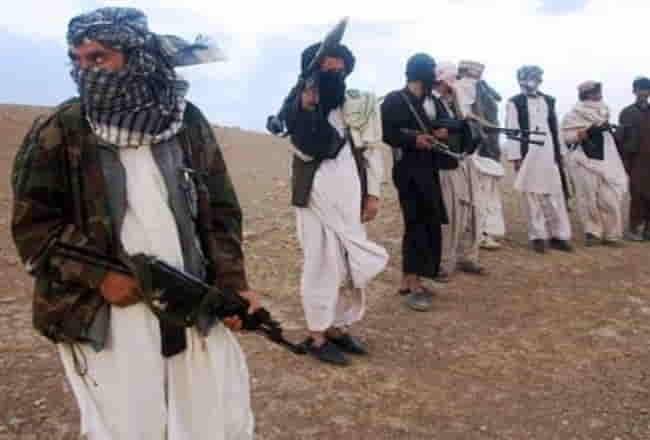
NATO’S FLIGHT OF FANTASY
In what can only be described as a comic albeit unwitting gesture, the G-7 leaders who met virtually days ago warned the Taliban that “international recognition” depends on their going by at least some of the many assurances that the Taliban spokesmen routinely recite before the press corps in Kabul. Each G-7 member state has an intelligence agency, with the budget for the collection of intelligence by Washington alone exceeding the GDP of several countries, including some in Europe. Had any of these agencies secured an accurate read on the Taliban, they would have prevented their political masters from reciting such hopelessly unreal statements as the Taliban being concerned about winning their goodwill.
All that the militia seeks is the avoidance of a kinetic conflict with NATO until such time as the militia and its archipelago of terror across the globe are refreshed and ready to strike at the Crusader “Far Enemy”. Those with knowledge of the chemistry and mindset of the Taliban would testify that the overwhelming majority of the cadres care less than the customary two hoots about “international recognition”. The few Taliban “leaders” who do have been briefed by their millionaire backers in some of the Middle Eastern countries that unless they get recognized as a legitimate government by the Atlanticist powers, it may be difficult to continue to funnel large amounts of money into their pockets. Some such financiers of individual Taliban leaders have at long last been subjected to questions by authorities in a few NATO member-states about the reasons for their generosity towards elements in the Taliban.
This is progress, although a mere slap on the wrist when compared with what is needed, which is sanctioning and prosecution of those funding the Taliban, especially in activities that hurt the interests and may take away the lives of citizens of countries within NATO. Such activity excludes Turkey, where President R.T. Erdogan has a special relationship with two of the six groups within the Taliban, and who seeks to take control of Kabul airport after the US and the other European powers vacate the premises around the close of the month. Ostensibly on behalf of NATO, but in reality in the interests of the Taliban factions that he supports.
The problem facing the Wahhabi President of what was once a secular republic is that at least three of the groups within the six that together constitute the Taliban are opposed to control of any airport in Afghanistan by Turkey or by any other outside power, and want all such airports (especially Kabul) to be run by themselves. Some in the Taliban, such as Mullah Baradar, are looking with anticipation at the bargains they will strike once the 31 August deadline is passed and Biden and his other G-7 partners beg for more time from the Taliban leadership to complete their evacuation.
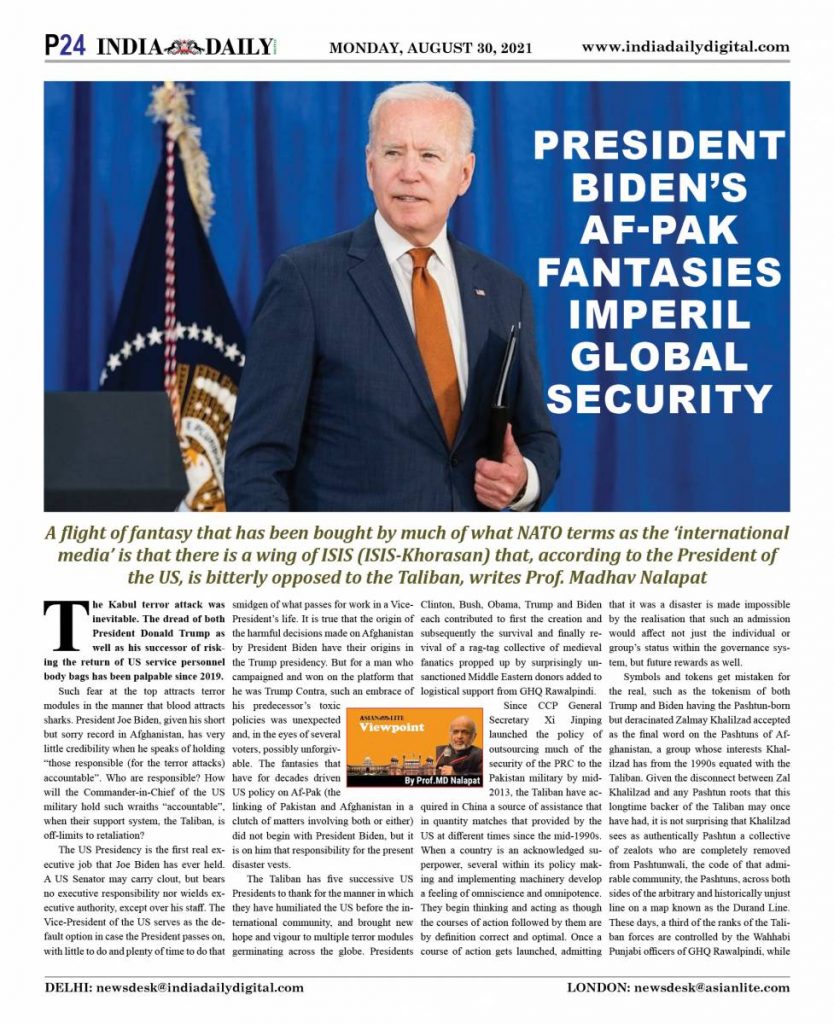
ISIS-K NOT TALIBAN’S ENEMY
Another flight of fantasy that has been bought by much of what NATO terms the “international media” (aka the media in the Atlanticist powers) is that there is a wing of ISIS (ISIS-Khorasan) that—according to the President of the US—is bitterly opposed to the Taliban. Would that President Biden were, finally, right on Afghanistan, but he is not. The reality has long been (and this was on display during the movement of NATO-backed “freedom fighters” in Syria who moved from “fighting for freedom” and back to Al Qaeda and Daesh several times in the space of a few months) that the Taliban is the abode of several collectives of extremist fighters who are presumed to act on their own but are protected and facilitated by elements in the Taliban.
There were indeed mass terror attacks on the premises of the Kabul airport. What seems to have eluded the intelligence agencies that had been supplied (not accidentally) with copious chatter on just such attacks is that the purpose of such operations is to ensure that NATO forces leave from the airport in haste for fear of casualties. Of course, the Taliban will claim that such attacks were carried out by elements outside their control. Indeed, in the language used by the incredibly credulous President Biden, the terror attacks on the airport perimeter were carried out by “enemies of the Taliban”, a falsehood repeated by “international media”.
If such is the lack of accuracy of the intelligence inputs reaching the US President, it is small wonder that Biden has so grossly harmed US interests by the manner of his orders for withdrawal of US forces from Afghanistan. The earlier date, 9/11, was portentous, as the US President’s actions in Afghanistan have opened the door to another 9/11 type of mass terror attack on the US homeland. This would give a fresh opportunity to the many within US business who still see the PRC as an opportunity to make money for themselves rather than as an existential threat to US interests worldwide. Given the recurrence of terror attacks in different locations to the west of China, these business groups could persuade Biden into following the example of President George W. Bush.
Once 9/11 took place, the focus of his administration shifted in hours from dealing with the threat posed to US primacy by China to the battling of Wahhabi terror, to the relief of the leadership of the CCP. Another such mass terror attack may, analysts in the PRC confidently expect, once again see a similar shift in Washington’s priorities. It is not for nothing that the Wahhabi International has found a firm friend in the CCP and in particular the Central Military Commission (CMC), the institution headquartered in Beijing that is using various innovative ways of keeping the Uygur population in Xinjiang in check, to a Nelson’s Eye from the Muslim-majority countries, including Uzbekistan and Turkey. Small wonder that the Wahhabi International (especially its Pakistan military affiliate) and the PRC have such a cosy relationship
UNDERSTAND PAKISTAN AND TALIBAN
India, Australia and Japan (the other three Quad members) must hope that President Biden will recover from his tryst with fantasy and understand that the Taliban and Pakistan are the problems facing the democracies in South Asia, and not the solution, as Biden in his days as a US Senator used to repeat ever so often. Every day that President Biden (not to mention other Atlanticists such as the UK Army chief Nick Carter) refuses to acknowledge the truth about the Taliban and its links to the Sino-Pakistan alliance (which is working hard to ensure that the terror factories bred within Wahhabi-controlled zones once again divert US attention away from China), the more difficult it will be for the democracies to defeat those forces out to further destabilize them.
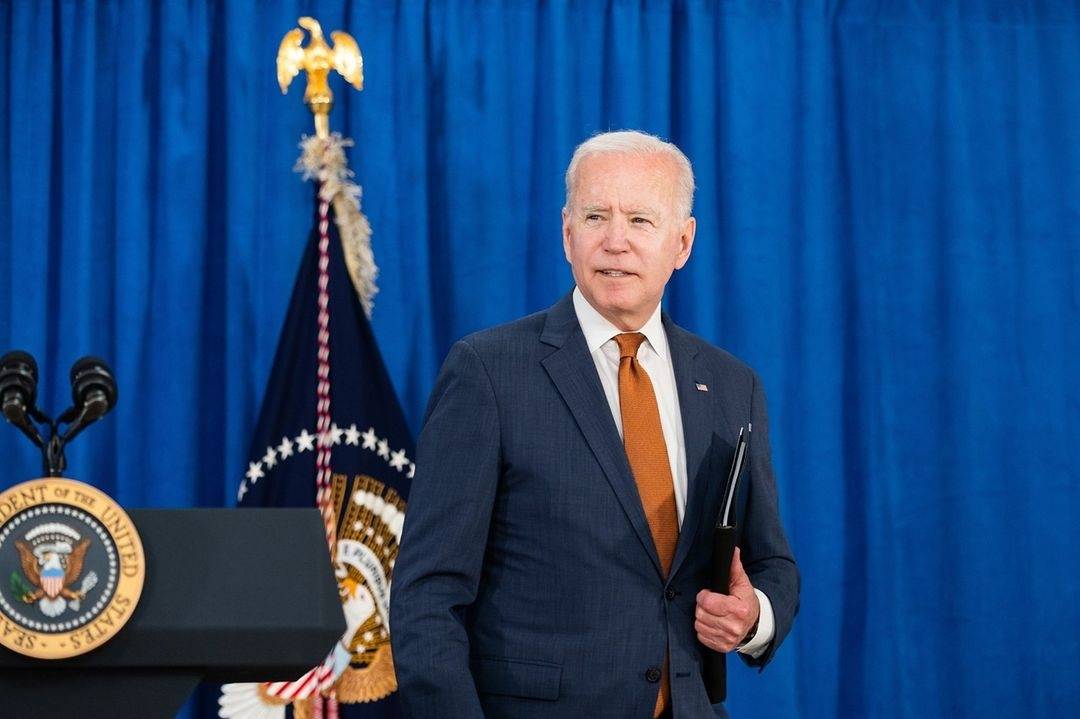
Leave a Reply